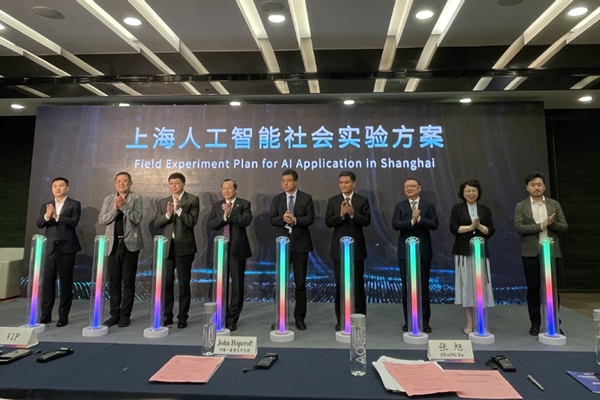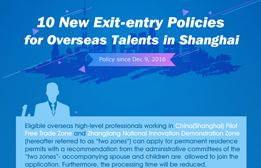Shanghai unveils 10-year AI plan
Medical diagnosis, elderly assistance among first application scenarios
Shanghai announced a municipal artificial intelligence plan that will look into rule changes related to digital technology, promote the establishment of technical standards and regulations and form a mechanism for monitoring risks and issuing early warnings.

Shanghai announces a plan in the artificial intelligence field to look into the rules of changes regarding digital technology, promote the establishment of relevant technical standards and regulations, and form the mechanism of early warning and motoring of risks. [Photo by Zhou Wenting / chinadaily.com.cn]
The entire plan, released during the 2021 World Artificial Intelligence Conference in the city, will take a decade to carry out, but results from the first phase are expected in three years.
Such efforts will probably prepare for AI-related legislation, the International Innovation Center of Tsinghua University, Shanghai, said. It will execute the plan under the guidance of the Shanghai Municipal Artificial Intelligence Leading Group and the Shanghai Science and Technology Commission.
Wang Youqiang, the center's executive director, said the Field Experiment Plan for AI Application in Shanghai will initially cover four application scenarios: assistance for medical diagnosis, expansion of QR code applications, smart service for the elderly and facial recognition.
"There has been quite a lot of involvement by enterprises and industries in those realms, but our plan-with AI projects being implemented in those areas and interacting with people's lives-will be a systematic, scientific and neutral attempt to discover common problems and attempt to formulate rules to avoid risks," Wang said.
"Through the implementation of those AI projects, we'll focus on major, urgent and frequent issues in the digital transformation of Shanghai and monitor the public's concerns on AI and digital technology."
The plan will use scientific measures to regulate the industry so that it produces safe, reliable and controllable products, help government agencies construct management rules and systems and enable users to properly use AI solutions with appropriate levels of self-protection, Wang said.
"Such AI governance rules may also be popularized in other regions of the country," he said. "And through the process, we may find model cases of digital transformation in the city with international demonstration effects to contribute Shanghai's wisdom and solutions to the world's AI development."
China's AI innovation ranked second in the world last year, behind the United States, and up from third the previous year, according to a report by the Institute of Scientific and Technical Information of China and Peking University.
The report said China performed well in terms of infrastructure, its innovative environment, scientific and technological research and development, and industry and application, ranking in the top 10 worldwide for all four indicators.
One example of industry success is IntelliCloud, an AI startup established in Hefei, Anhui province, in 2018, that provides smart safety solutions for different scenarios and has more than a dozen AI-related software copyrights.
At the conference, it exhibited its smart safety management solution at a ski field in Zhangjiakou, Hebei province, which integrates software, hardware, the internet of things and an AI sensing system. Zhangjiakou is one of the venues where the 2022 Olympic and Paralympic Winter Games will be held.
"In a ski field covering 4 square kilometers across the mountains with abundant forests, our smart solution can realize autonomous inspection, leaving no blind zones around the clock to ensure fire prevention, spot illegal entry, guarantee safety on the ski lanes, and discover emergencies and issue first-aid alarms," Wei Hongfeng, IntelliCloud's CEO and chief scientist, said.

 Print
Print Mail
Mail




